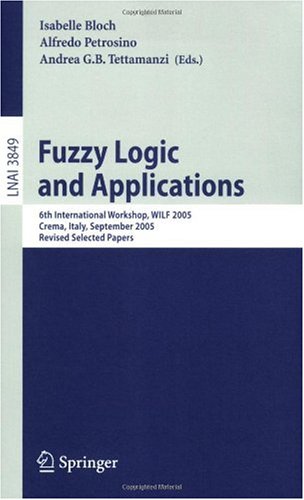

Most ebook files are in PDF format, so you can easily read them using various software such as Foxit Reader or directly on the Google Chrome browser.
Some ebook files are released by publishers in other formats such as .awz, .mobi, .epub, .fb2, etc. You may need to install specific software to read these formats on mobile/PC, such as Calibre.
Please read the tutorial at this link: https://ebookbell.com/faq
We offer FREE conversion to the popular formats you request; however, this may take some time. Therefore, right after payment, please email us, and we will try to provide the service as quickly as possible.
For some exceptional file formats or broken links (if any), please refrain from opening any disputes. Instead, email us first, and we will try to assist within a maximum of 6 hours.
EbookBell Team

0.0
0 reviewsThis volume contains the proceedings of the 6th International Workshop on Soft Computing and Applications (WILF 2005), which took place in Crema, Italy, on September 15–17, 2005, continuing an established tradition of biannual meetings among researchers and developers from both academia and industry to report on the latest scienti?c and theoretical advances, to discuss and debate major issues, and to demonstrate state-of-the-art systems. This edition of the workshop included two special sessions, sort of subwo- shops, focusing on the application of soft computing techniques (or compu- tional intelligence) to image processing (SCIP) and bioinformatics (CIBB). WILF began life in Naples in 1995. Subsequent editions of this event took place in 1997 in Bari, in 1999 in Genoa, in 2001 in Milan, and in 2003 back in Naples. Soft computing, also known as computational intelligence, di?ers from c- ventional (hard) computing in that, unlike hard computing, it is tolerant of - precision, uncertainty, partial truth, and approximation. The guiding principle of soft computing is to exploit the tolerance for imprecision, uncertainty, partial truth, and approximation to achieve tractability, robustness, and low solution cost. The main components of soft computing are fuzzy logic, neural computing, and evolutionary computation.